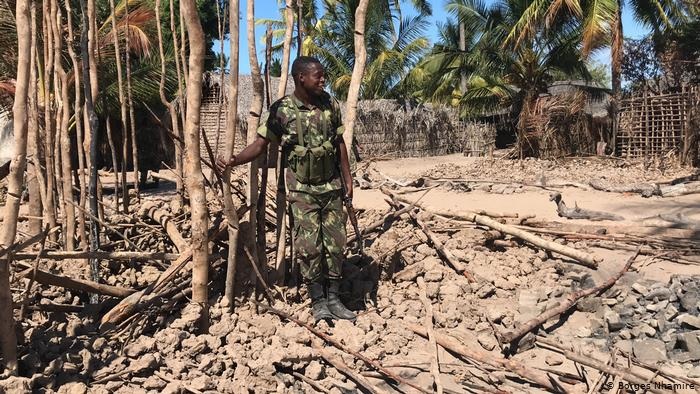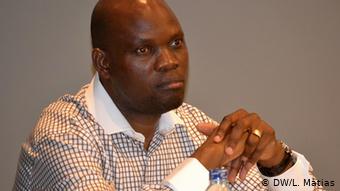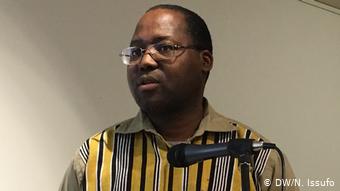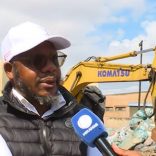Mozambique: ITRANSMAR declares state of alert following boat capsize off Beira
Mozambique: Who facilitates insurgents’ access to FDS equipment?

FILE - For illustration purposes only. [File photo: DW]
This is the question that many are asking themselves. The CDD has demanded a response from the government, while another expert believes in the collaboration of FDS deserters and in the thesis of the exclusion of young people who have completed military service, but have not found work.
Mozambicans have begun to get used to seeing images on social media of insurgents travelling in style in Mozambican police vehicles after victorious attacks for some months now. But not to the extent that abuse against the state has become commonplace, at least in civil society.
But the director of the Centre for Democracy Development (CDD), in addition to protesting against the attacks, which have been ongoing for more than two years now, warns of other suspicious characteristics and signs shown by the insurgents.
Adriano Nuvunga says that “images have been appearing that suggest that police circulating media with silent confirmation from the general commander were used or seen with insurgents. And also with the indication that some uniforms that appear in the photographs are very similar to those used by the Defence and Security Forces (FDS)”.
The CDD director calls on the government to make a stand. “It is necessary to guarantee transparency, to say what is happening. Another issue is the apathy which the insurgents apparently prompt in the FDS,” he says.

Is social exclusion a justification?
But Calton Cadeado, an expert in security studies at the Centre for International Strategic Studies (CEEI) in Maputo, absolves the state from blame.
“I cannot agree that there is a support from the FDS. The is some evidence that there are some members of the FDS who graduated from state military training institutions and served in the FDS, but who later deserted.”
“In addition to these, there are allegations that some of these young people did compulsory military service and were later demobilised, but did not achieve social reintegration in a dignified manner, above all economic, and therefore became dissatisfied. Discontent, unfortunately, being manifested in a particularly cruel way,” he says.
Social exclusion is one of the probable causes of the insurgency in Cabo Delgado, according to an IESE study presented in 2019. But not everyone shares this premise.
Elísio Macamo is one of them.
“I think it is an ‘all-terrain’ explanation used by people who are too lazy to seriously reflect on something they don’t understand,” he says. “It is true that, in this context, any manifestation of revolt or resistance towards the state will be interpreted in this way – as if people were reacting to exclusion. But I think that, in the case of Cabo Delgado, what is happening is probably more a manifestation of the vulnerability in which people find themselves.”
Regarding the [FDS] apathy posited by Nuvunga, Cadeado says: “The FDS are psychologically weakened and have low morale. In addition, the FDS are fighting without either offensive and defensive capabilities, and therefore there is no security for them to put their lives at risk.”

The silences of SADC and the AU
But, given the upsurge in the insurgency, it is not only the Mozambican state from which the CDD is demanding a firmer response. It also thinks that regional organizations such as the SADC should get involved. Its view is that the SADC is a crucial platform at this critical moment.
But Nuvunga suspects the organisation is already immersed in lethargy.
“We have been calling for the intervention of the African Union and SADC, but they remain strangely silent about what is happening, particularly the SADC, which knows that if Mozambique is rendered unstable by jihadists, the whole region will be disconcerted. But, apparently, the SADC is not interested in the issue.”
The CDD director however remains hopeful and recalls that “this year, if the coronavirus allows, there will be an SADC summit in Mozambique in September, and perhaps by then there will have been an advance in terms of proactivity, inclusive dialogue on what is happening, or some use of regional mechanisms”.
In this case too, Calton Cadeado exonerates the organization, saying: “It is not true that SADC does not care about Mozambique.” “There were meetings of the SADC body for Political Cooperation, Defence and Security on the subject of Cabo Delgado. At least at the level of those responsible for security,” he counter-claims.
But of any results or measured outputs, Cadeado knows nothing. Nor were the conclusions released to the public.












Leave a Reply
Be the First to Comment!
You must be logged in to post a comment.
You must be logged in to post a comment.